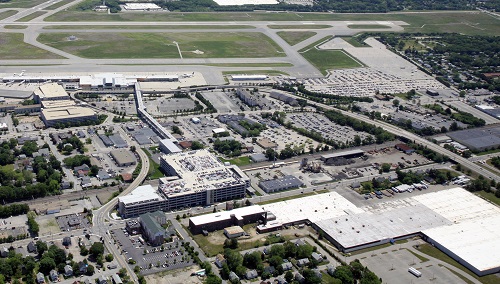
| Sen. Murray’s tangible tax bill now law | |
| STATE HOUSE – The new tangible property tax exemption sponsored by Sen. Melissa A. Murray is now law.
The legislation (2023-S 0928A), approved by the General Assembly June 15 and signed into law by Gov. Dan McKee late last week, exempts the first $50,000 of tangible property from the tangible personal property tax to help businesses — especially small businesses — statewide. The tangible personal property tax is paid by businesses on property, other than real estate, that has value by itself, such as computer equipment, furnishings and fixtures. The legislation was also included in the 2024 state budget bill, which also passed the Assembly today. “The tangible tax is both a financial and administrative burden for small businesses. Complying with it is complex, and it’s also an enforcement burden for cities and towns. Eliminating this tax for smaller businesses will give them genuine, much-needed relief. It’s a way our state can provide help for the small businesses that support our cities and towns, make our communities unique, and most importantly, employ Rhode Islanders,” said Senator Murray (D-Dist. 24, Woonsocket, North Smithfield). Companion legislation (2023-H 6333) sponsored by Rep. Brandon T. Voas (D-Dist. 57, Cumberland, Central Falls) was also enacted. The new law provides a $50,000 exemption to all tangible tax accounts beginning in the 2024 tax year. Those with more than $50,000 worth of tangible assets would have to pay the tax on the assets above $50,000, but would still receive an equal amount of tax relief. The legislation will completely wipe out the tangible tax for 75% of Rhode Island businesses. Without the change, $50,000 worth of computer equipment owned by a business located in Providence would result in more than $10,000 in tangible taxes over the course of 10 years, in addition to the $3,500 the company would have paid in sales tax at its purchase. Since the tangible tax is a municipal-level tax rather than a state one, the state will reimburse each city, town and fire district annually for their lost revenue, just as it does for revenue they lost from the phased-out vehicle excise tax. According to the Rhode Island Public Expenditure Council (RIPEC), which has recommended the exemption, the annual cost to the state would be about $25 million. The law also requires municipalities and fire districts to cap their tangible property tax rate at the level applied in fiscal year 2024. The tax cap would not apply in the case of municipalities and fire districts that utilize a uniform tax rate for all classes of property. For more information, contact: |



 Share This
Share This